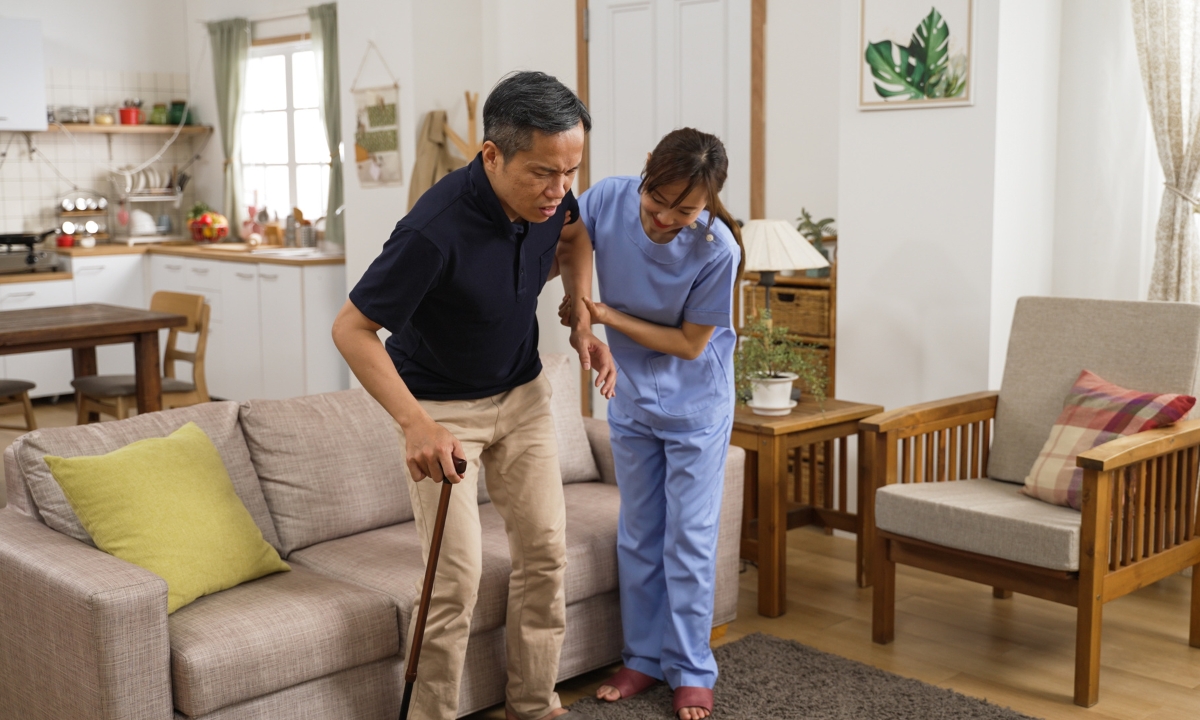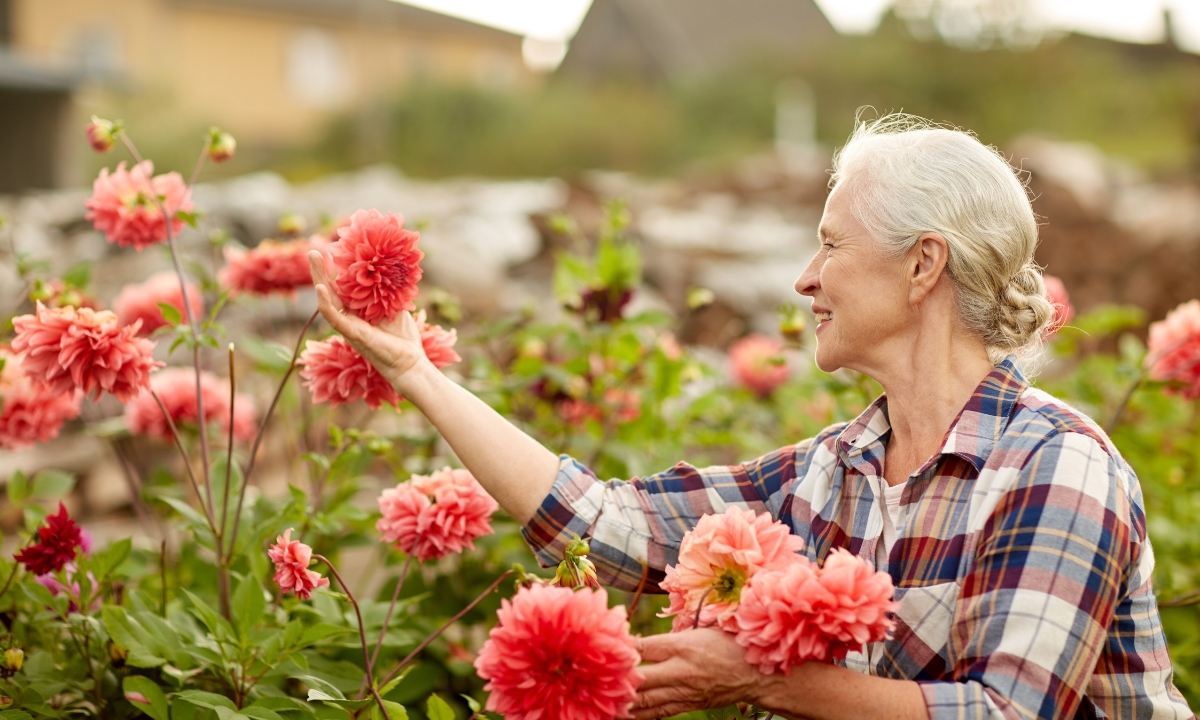Aging in place is a growing trend among seniors who prefer to live in the comfort and familiarity of their own homes for as long as possible. For many, staying at home fosters a sense of independence, comfort, and dignity. However, as we age, our homes may need to be adjusted to meet evolving needs, ensuring that they remain safe and accessible. At Reliant Home Care Services, we are dedicated to helping families create a home environment that supports aging in place, which includes providing a home safety audit as part of our in-home care services.
Here are some essential tips and tricks to help make your home or the home of a loved one more senior-friendly so they can continue living safely and independently.

The Importance of a Senior-Friendly Home
According to the U.S. Centers for Disease Control and Prevention (CDC), more than one in four seniors (aged 65 and older) falls each year, and falls are the leading cause of fatal and non-fatal injuries for seniors. Many of these falls happen at home, where obstacles, uneven surfaces, and poor lighting can turn a familiar space into a hazard.
By making a few key adjustments to the home, you can help reduce the risk of injury and ensure that your loved one is able to live independently and confidently.
1. Prioritize Fall Prevention
Falls are the leading cause of injury among seniors, so fall prevention should be a top priority. Here are a few ways to reduce the risk of falls:
- Install grab bars in the bathroom, especially near the toilet and in the shower or bathtub. These provide stability and support for your loved one.
- Remove tripping hazards such as loose rugs, electrical cords, and clutter from floors.
- Improve lighting in all areas of the home, especially in hallways and stairwells. Install night lights in bedrooms, bathrooms, and kitchens to improve visibility during nighttime hours.
- Secure loose carpets or remove them entirely to avoid slips and trips.
2. Make the Bathroom Accessible
Bathrooms are one of the most dangerous areas of the home due to slippery surfaces and the potential for falls. Consider making the following modifications to improve bathroom safety:
- Install a walk-in shower or tub to eliminate the need to step over high thresholds.
- Add non-slip mats in the shower or bathtub and on the bathroom floor to prevent slipping.
- Use a shower chair or bench for additional support during bathing.
- Replace faucets with lever handles, which are easier for those with arthritis or limited mobility to operate.
3. Improve Mobility Throughout the Home
Seniors often experience mobility challenges, so it’s important to ensure that they can move through the home with ease. Consider these home modifications:
- Widen doorways to accommodate walkers or wheelchairs, which may require professional assistance.
- Install ramps or stairlifts if your home has stairs. Even a single step at an entrance can pose a barrier to someone with limited mobility.
- Rearrange furniture to create clear pathways, allowing seniors to navigate the home without obstacles.
- Move essential items to lower shelves and cabinets in the kitchen, reducing the need for seniors to reach or climb.
4. Ensure the Home is Well-Organized and Accessible
Keeping the home well-organized is important for accessibility. Here are a few tips:
- Label cabinets and drawers to help your loved one easily find what they need without confusion.
- Use voice-activated devices like smart home systems, which can control lights, lock doors, and adjust the thermostat with simple voice commands.
- Ensure easy access to emergency phone numbers and a medical alert system in case of emergencies.
Of course, some of these modifications are easier and more affordable than others. If you determine that your loved one’s home would need major structural changes to accommodate a wheelchair or other support, it may be time for them to consider other options. It is important to be practical about what is and isn’t possible, especially if you don’t have the finances for a major remodeling project.
In-Home Care: Ongoing Support for Seniors Aging in Place
In addition to home modifications, in-home care provides critical support to help your loved one age in place safely and comfortably. At Reliant Home Care Services, our in-home care services are designed to meet the unique needs of each client, ensuring personalized and compassionate care in the comfort of their own home.
One of the key services we offer is a home safety audit, where our trained caregivers assess the home environment to identify potential safety hazards and recommend improvements. This includes evaluating the bathroom, kitchen, living areas, and entrances for fall risks and accessibility issues.
Beyond safety, our caregivers provide assistance with daily tasks such as bathing, dressing, meal preparation, and medication management. This not only ensures that your loved one receives the care they need but also gives you and your family peace of mind.
The Benefits of a Home Safety Audit
A home safety audit can help identify risks that may not be immediately obvious. For example, poor lighting, uneven flooring, and cluttered spaces are often overlooked but can be dangerous for seniors. By addressing these hazards, you can create a safer living environment and help prevent injuries.
At Reliant Home Care Services, our caregivers are trained to conduct comprehensive home safety audits, providing recommendations tailored to the individual’s specific needs. We also work closely with families to implement these modifications, ensuring the home remains a safe and supportive environment. We’re not going to come in and demand you make changes, but we will highlight areas and give you options for reducing risks.

You Can Rely on Reliant to Help Your Loved One Age in Place
Aging in place is a goal for many seniors, and with the right home modifications and support, it’s possible to live safely and independently for many years. By following these tips to make your home more senior-friendly and considering in-home care services from Reliant, you can ensure that your aging loved one has the care and support they need to thrive.
For more information about our in-home care services and home safety audits, contact us today.

